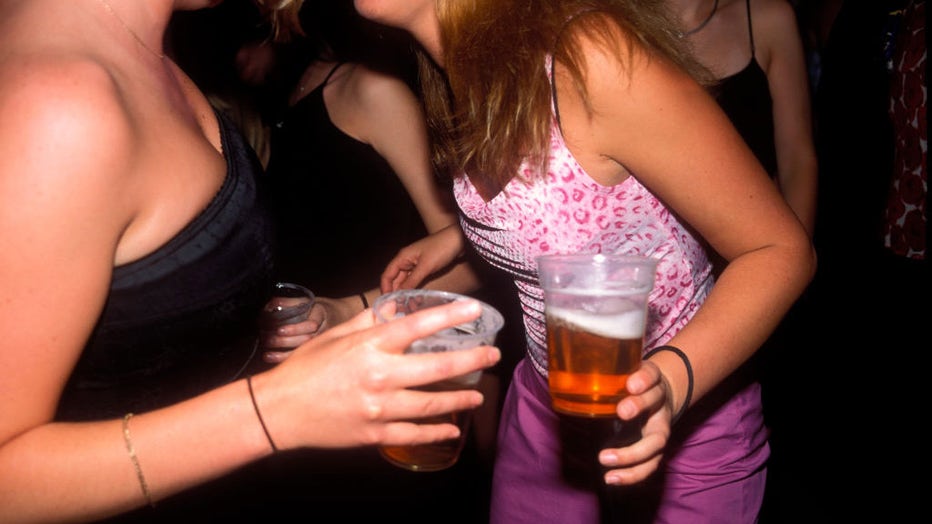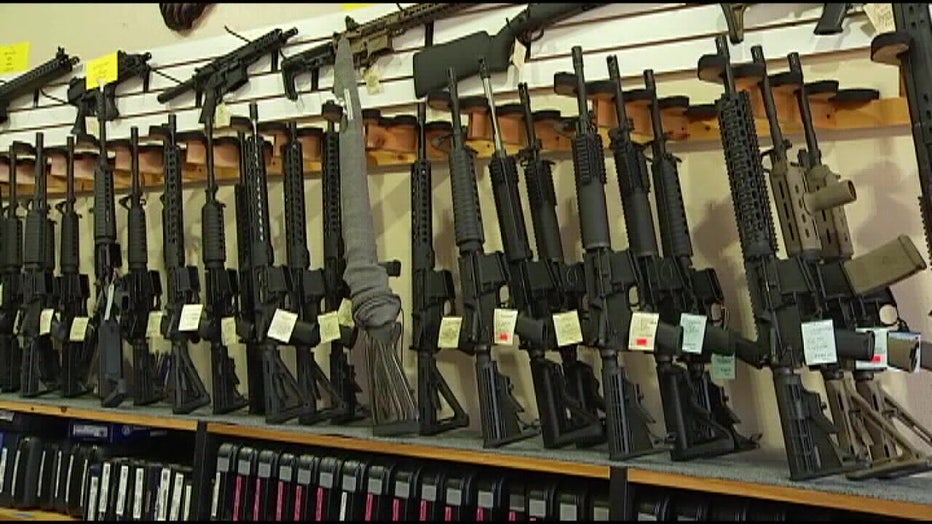New California laws go into effect on July 1

(Credit: David Paul Morris/Bloomberg via Getty Images)
SACRAMENTO, Calif. - Starting July 1, a batch of new laws will take effect in California, ranging from legislation banning junk fees, to a law that seeks to protect renters from exorbitant security deposits, as well as one designed to prevent victims from getting unknowingly drugged at bars and clubs.
Here's a look at some of the new laws.
Drug Testing Kits
Assembly Bill 1013 will require businesses like bars and clubs that sell alcohol to be consumed on-site, to offer drug testing kits. The testing devices must be available at a reasonable cost or free of charge.

FILE - Girls drinking alcohol and dancing. (Photo by PYMCA/Avalon/Getty Images)
Businesses are also required to post a notice of the testing kit availability in a prominent, conspicuous location, with the words: "Don’t get roofied! Drink spiking drug test kits available here. Ask a staff member for details."
MORE: California bars and nightclubs must provide drug testing tools starting July 1
Security Deposit
With housing costs in California, and especially the Bay Area, historically among the highest in the nation, AB 12 will cap a residential renter’s security deposit at one month’s rent, regardless of whether the property is furnished or not.
Under the law, a landlord who owns no more than two residential rental properties that collectively include no more than four dwelling units can collect up to two months’ rent as a security deposit.
SEE ALSO: South Bay couple, landlord squabble over living conditions at apartment
Right to Repair
Senate Bill 244 seeks to protect consumers who purchase electronic devices and appliances that cost more than $50. The law will require manufacturers to provide owners with product tools, parts or instructions to repair a device.
California will become the third state after Minnesota and New York to enact a right to repair law.
Junk Fees Transparency
SB 478 seeks to make hidden charges illegal, banning businesses from the practice of "bait and switch advertising." It will require all mandatory fees or charges to be stated up front, prohibiting undisclosed fees to be added at the end of transactions, like those often seen in the purchase of concert and sporting tickets and short term lodging.
Workplace Violence Prevention
SB 553 will require employers to adopt "an effective" workplace violence prevention plan. Companies will be required to record violent incidents in a log and have mandatory training on violence prevention.
The law will also require companies to adopt "effective" procedures on how to respond to reports of workplace violence. And it would prohibit retaliation against an employee who makes such a report.
Firearms Tax
AB 28 will impose an 11% excise tax on the sale on firearms, firearms precursor parts, and ammunition. The revenue from the tax will go into the "Gun Violence Prevention and School Safety Fund."
The tax will fund programs for gun violence prevention, education, research and response.

Keep Students in School
SB 274 addresses public school responses to students considered to be deemed to be in "willful defiance." The law will ban the suspension or expulsion of those students. Instead, it will require school officials to implement intervention programs and other support for students who are deemed as disrupting school activities or willfully defying the authority of school personnel.
The law will also require school officials to document the actions taken within five days of the incident.
Menstrual Equity
AB 230 will expand an existing law requiring public schools to provide free menstrual products in public school bathrooms. The new law will now include schools instructing students in grades 3 and up. The existing law was limited to schools with classrooms grades 6 to 12.

